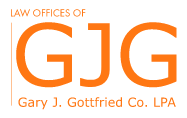Recently the Ohio Supreme Court issued a decision regarding the calculation of child support and concluded that employer benefits can be considered as income for child support purposes. The case is Morrow v Becker. The following is an excerpt of the decision as reported by Kathleen Maloney.
By Kathleen Maloney | October 16, 2013
Certain employer-paid benefits may be included as gross income fo…r the purpose of calculating child support payments, the Ohio Supreme Court ruled today.
The 6-1 decision, authored by Justice Paul E. Pfeifer, affirms the judgment of the Ninth District Court of Appeals that the trial court did not abuse its discretion when it included the value of several benefits provided by an employer in a decision whether to adjust a child-support obligation.
In this case, Jeffrey Morrow and Sherri Becker, the parents of two children, separated, and Morrow was ordered in 2006 to pay child support. A few years later, Morrow asked the Medina County Domestic Relations Court to reduce his child support payments because his salary had been significantly cut following the 2008-2009 economic recession.
The trial court concluded that Morrow wasn’t entitled to a reduction in his monthly child support obligation. In determining Morrow’s annual income, the court included $16,756 worth of non-cash benefits he received from his employer, including a company-owned car, company-paid car insurance, a company-paid cellular phone service, and company-paid season tickets to Ohio State University football games.
Morrow appealed. The Ninth District Court of Appeals, agreeing with the trial court, held that the value of the non-cash benefits should be included in Morrow’s gross income. The appeals court ruled that the trial court didn’t abuse its discretion, because Morrow would have otherwise had to pay for those benefits with his own money. The appeals court determined, however, that the OSU football tickets shouldn’t have been included in Morrow’s gross income because he didn’t receive the full value of the tickets, but the court found that error was harmless.
Morrow appealed the Ninth District’s decision to the Ohio Supreme Court. Morrow appealed the Ninth District’s decision to the Ohio Supreme Court. The Supreme Court accepted Morrow’s discretionary appeal and the Ninth District’s certified conflict question and consolidated the cases for oral arguments.
Morrow contended in his appeal to the court that the law only references company cars and other in-kind items in the context of “self-employment, proprietorship of a business, joint ownership of a partnership or closely held corporation.” Because he isn’t in one of those employment categories, Morrow asserted that the General Assembly intended to exclude such items from gross income when received outside those types of jobs. The Supreme Court today found that nothing in the statutes support that conclusion.
In his opinion, Justice Pfeifer also concluded that the definition of gross income is broad enough to encompass the benefits described in this case. Because Morrow had no car, car insurance, or phone other than the ones given to him by his employer, the court determined it was reasonable to include the value of these benefits in Morrow’s gross income.
“If his employer did not provide a car, Morrow would have had to purchase or lease one on his own, using his own funds,” Justice Pfeifer wrote. “[T]he person receiving the benefit effectively has a higher income. We reach the same conclusion with respect to the car insurance and cell phone.”
However, Justice Pfeifer stated that the employer gave Morrow the football tickets to use as perks for employees or gifts for business associates, so Morrow didn’t receive the full benefit of the tickets. But, because the value of the tickets amounted to only about one percent of Morrow’s gross income, Justice Pfeifer concluded that their inclusion in Morrow’s income was a harmless error.
The court’s majority opinion was joined by Chief Justice Maureen O’Connor and Justices Judith Ann Lanzinger, Sharon L. Kennedy, Judith L. French, and William M. O’Neill.
Justice Terrence O’Donnell wrote a dissent. In it, he stated that the majority fails to distinguish between the business use and personal use of the employer-provided benefits. “[A]nalysis of whether the value of employer-provided benefits should be included in gross income should consider the purpose for which the employer provided them as fringe benefits and the extent to which they are used for business purposes,” he concluded.
2012-1674 and 2012-1898. Morrow v. Becker, Slip Opinion No. 2013-Ohio-




